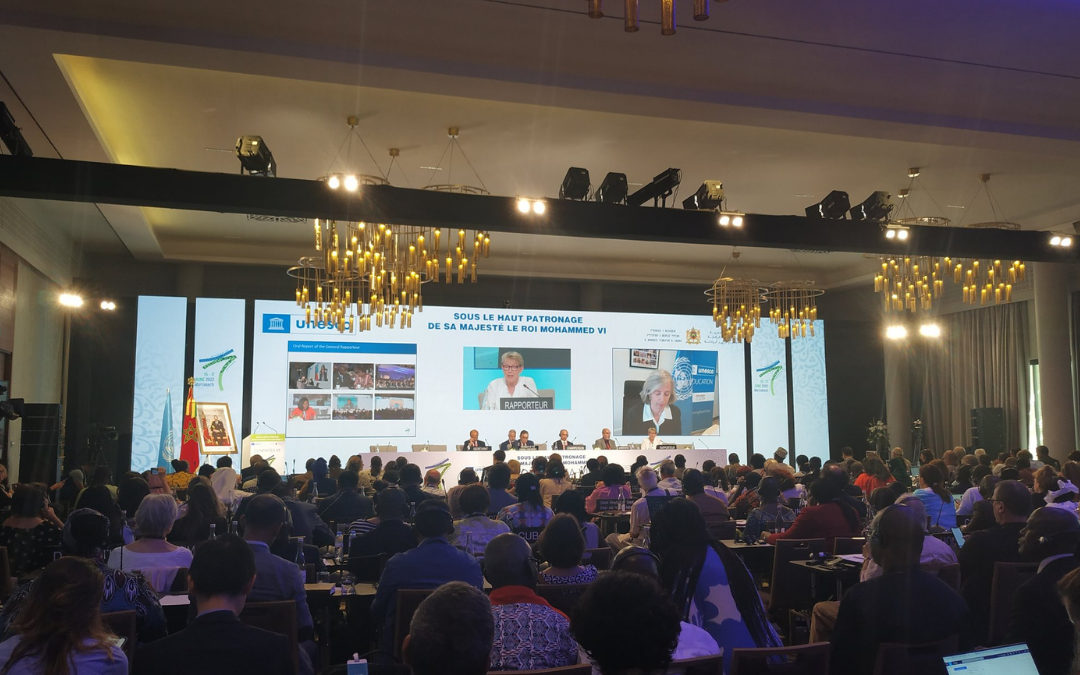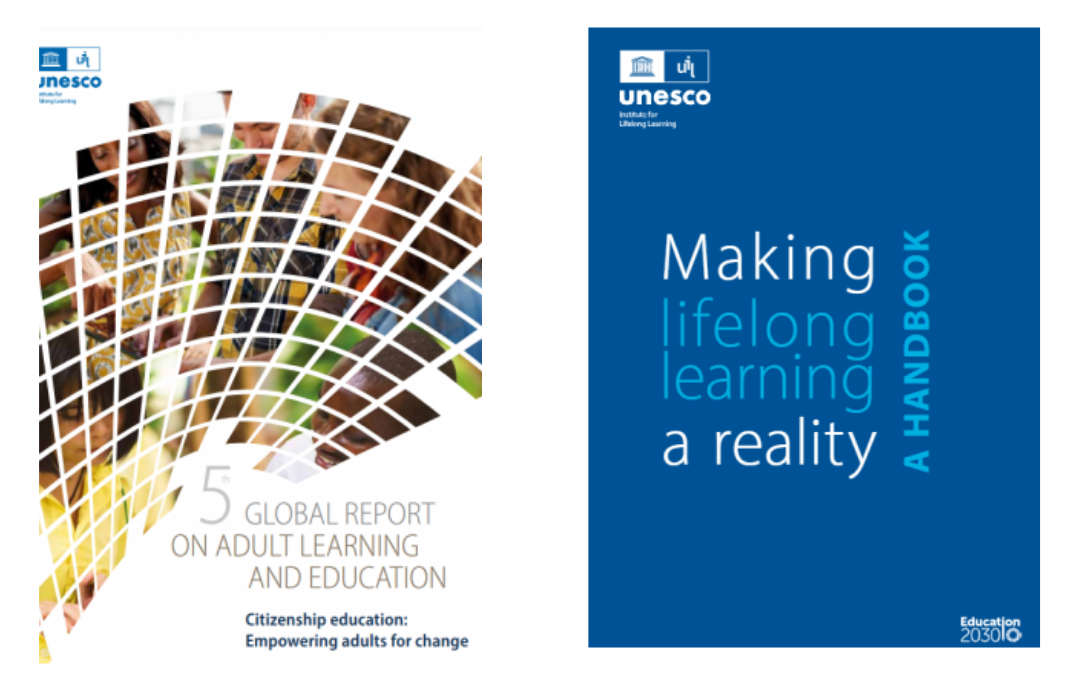From 15 to 17 June, Teja Dolgan (from MESS), Dr Nataša Potočnik and Jasmina Mirčeva, MSc, (both from the SIAE) attended the International Conference on Adult Education – CONFINTEA VII, entitled Adult Learning and Education for Sustainable Development – a Transformative Agenda. More than 1,000 representatives participated in the conference live and online, including heads of state, ministers of education and high-level representatives of the UN.
As part of the conference, six plenary lectures and twenty workshops were held, all on the topic of ALE in connection with climate change, the right to lifelong learning, literacy, the use of modern technology in education and the future of work and learning cities. Participants discussed how to harness the transformative power of ALE for sustainable development in the context of challenges such as the climate crisis, rapid technological advances and the changing world of work.
The CONFINTEA International Conference is held every 12 years to set guidelines for ALE in the next decade. The first was held in 1949 in Elsinore, Denmark, followed by a conference in Montreal (Canada) in 1960. It was held in Tokyo, Japan, in 1972, Paris in 1985, Hamburg in 1997 and Belém (Brazil) in 2009. At the Belém Conference, a Belém Framework for Action (BFA) was adopted. The participating countries have committed to supporting six of ALE’s key areas: policy, governance, financing, inclusion, participation and quality. Their realisation was published in the Global Report on Adult Learning and Education – GRALE 5 and presented at this year’s conference. A key message of UNESCO’s Fifth Global Report is that education is not reaching those adults who need it most.
The new Framework for Action on Adult Learning and Education adopted at the recent CONFINTEA VII conference has replaced the BFA. Representatives of more than 140 countries have pledged to make the vision of the right to lifelong learning a reality. They will significantly increase the participation of adults in learning and implement greater financial investments in ALE.
The day before the start of the high-profile event, three forums were organised: Civil Society Forum, Youth Forum and Private Sector Forum. The participants discussed the challenges and priorities in the mentioned fields in different regions of the world. They prepared a set of recommendations later addressed in the conference’s central part.
As part of the conference, the publication Making Lifelong Learning a Reality UIL was promoted. The handbook includes information and basic conceptual models to facilitate lifelong learning at national and local levels. It represents international experience and offers guidelines for the operationalisation of lifelong learning in response to the main issues of sustainable development in line with the 2030 Agenda for Sustainable Development. It is intended as a source of inspiration and a guide for policymakers and officials responsible for implementing lifelong learning policies.
Jasmina Mirčeva, MSc (jasmina.mirceva@acs.si), SIAE



